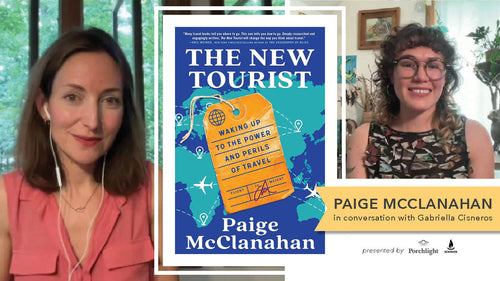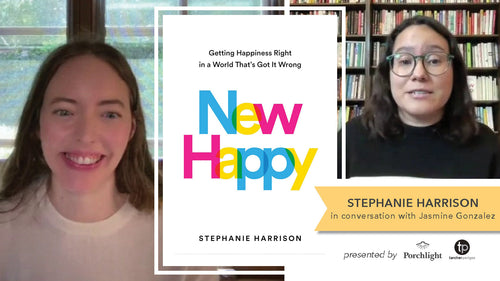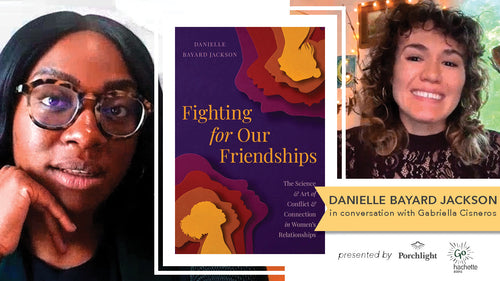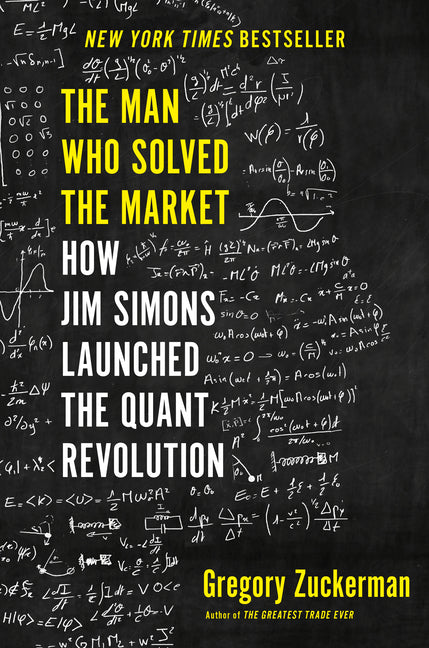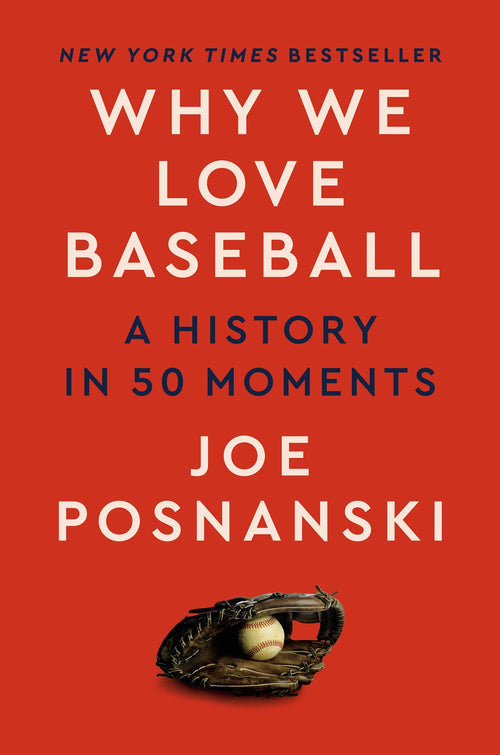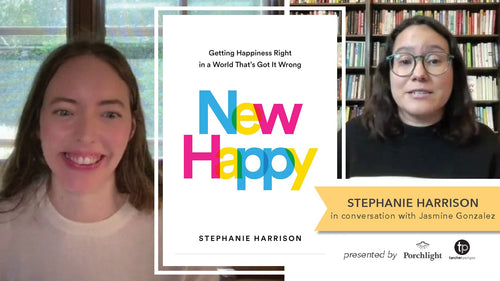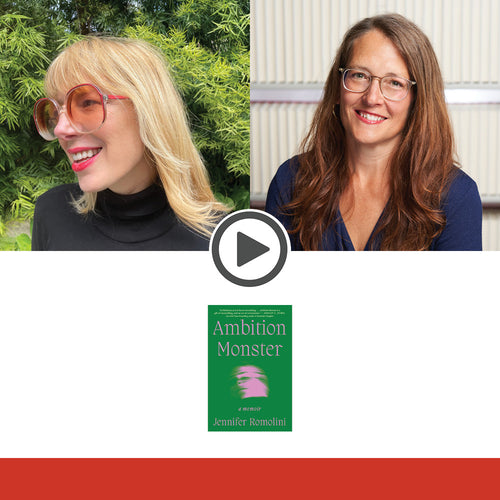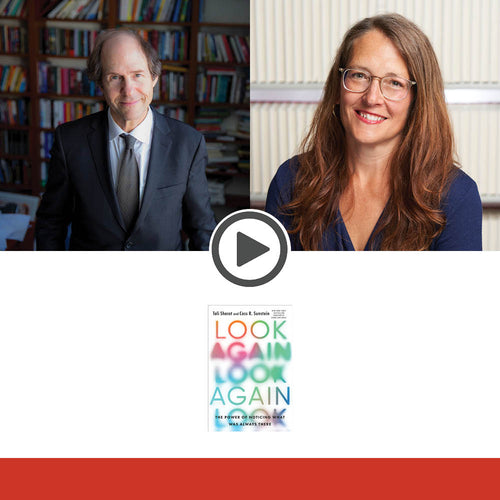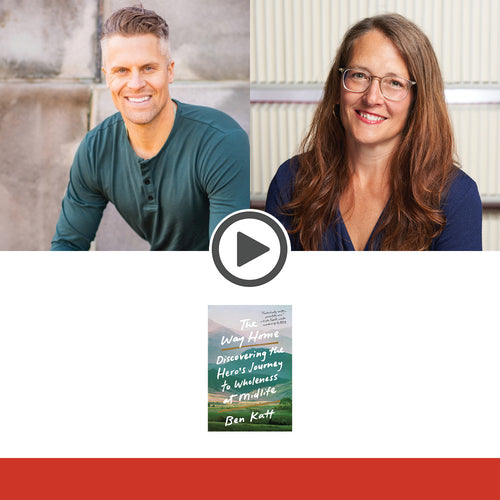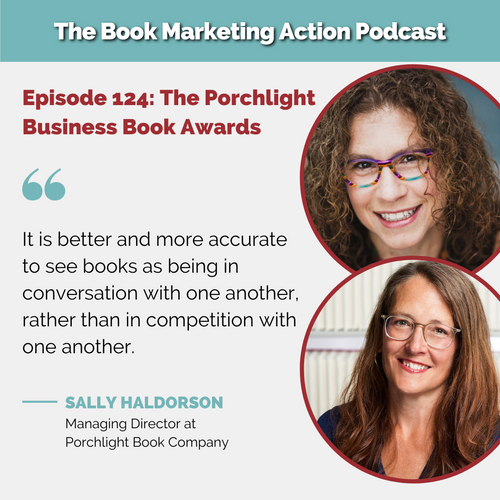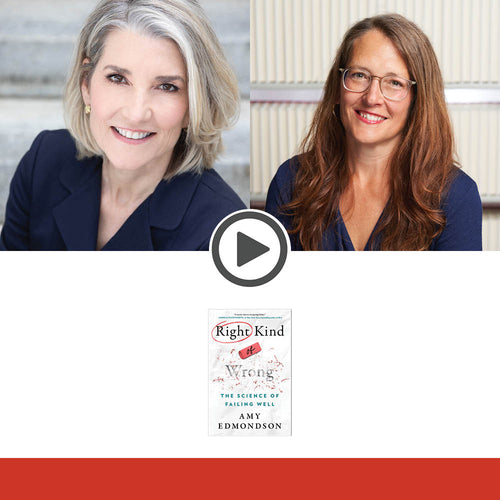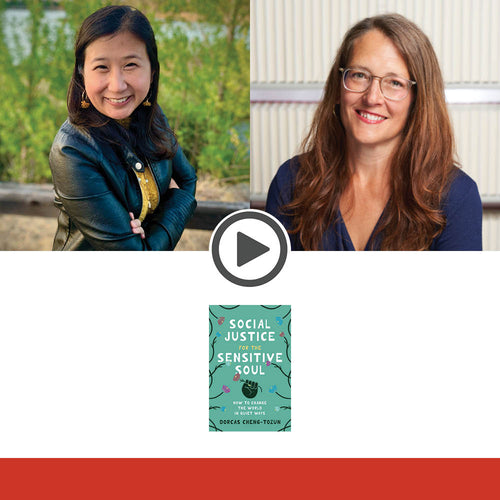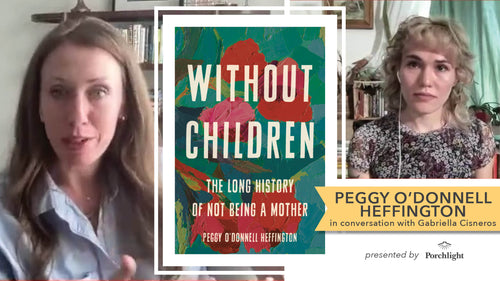A Q&A with Jack Skeels
Jack Skeels talks about his latest book and shares some of his other recommended reads.
 What if the secret to managing better was to manage less?
What if the secret to managing better was to manage less?
This is the question Jack Skeels explores in his book, Unmanaged: Master the Magic of Creating Empowered and Happy Organizations. Drawing on over a decade of research across 200+ high-performing organizations, Skeels challenges traditional management models and introduces a new, Agile-inspired approach that enhances productivity, project success, profitability, and employee happiness.
In this interview, Skeels answered some of our questions about the book and revealed the books that he's read time and again that shaped his journey as an author.
◊◊◊◊◊
Porchlight Book Company: Writing a book is no small undertaking. What compelled you to write this one?
Jack Skeels: Well, the honest (and kind of funny) answer is that someone told me I wasn’t a good manager. That stung—but it also lit a fire. Because the truth is, this topic had been rattling around in my head for decades. Back when I was a senior analyst at RAND—25 years ago or so—I kept wondering: Why do we organize the way we do? Why do we manage this way? It all felt so strangely… clunky. Like we’d inherited a bunch of habits from the industrial age and just kept polishing them instead of asking if they actually worked.
So when that criticism landed, it wasn’t just about defending myself. It was like someone handed me a never-ending crossword puzzle I couldn’t put down. I wanted to understand how management really works—not in theory, but in practice, especially in messy, creative, high-pressure environments. And as I worked with hundreds of organizations, I realized that the answer wasn’t to manage better… it was to manage less, and to do it very, very differently.
PBC: Writing (and reading) always prompts as many new questions as it offers answers to the ones you came to it with. What is one unanswered question you encountered as you wrote the book that you are most interested in answering now?
JS: I keep coming back to this: how do we help managers feel safe enough to change? Because here’s the truth—we make managers the way they are. The systems that shape someone’s journey into management—whether they were promoted for being great at their craft or just happened to raise their hand—also bake in a bunch of old assumptions. Things like: “You should always be in charge,” “You need to have all the answers,” “Your value comes from oversight.” It’s no wonder so many managers are stuck in survival mode.
And it’s not just a mindset problem—it’s structural. Job titles, performance reviews, salary bands, reporting chains… the whole machinery is designed around a kind of industrial-era meritocracy that just doesn’t work in fast, creative, modern organizations. So I keep asking: how do we unhook people from that system without pulling the floor out from under them?
That question is one of the reasons I’m building Tavi—an AI-powered management assistant that will bring the ideas from Unmanaged to life inside organizations. She’s not a chatbot that tells you what to do—she’s more like a tiny, friendly coach who helps managers learn as they go, make better decisions, and (ideally) interrupt their team a whole lot less. It’s part technology, part philosophy experiment, and I’m loving every minute of it.
PBC: If there is only one thing a reader takes away from reading this book, what would you hope it to be?
JS: That great managers don’t do more—and they know when to do less. That’s not just about working fewer hours or sending fewer emails. It’s about realizing that every act of managing—every question, every meeting, every “check-in”—has the potential to disrupt flow, clarity, and motivation. The artistry of being a great manager is knowing when to step in… and when to stay out.
It’s honestly not that different from what makes a therapist great. It’s not about solving things for people—it’s about knowing when to listen, when to guide, and when to just let silence do the heavy lifting. That kind of restraint is real leadership.
PBC: One of the great things about books is that they tend to lead readers to other books. What book[s] related to this topic would you recommend people read after (or perhaps even before) reading your book?
JS: If you want to go deep—like, deep-deep—start with Rensis Likert’s New Patterns of Management. It’s a classic for a reason. Likert really broke open the idea that how managers interact with workers isn’t just a style thing—it’s the operating system of the whole organization.
I’d also recommend Henry Mintzberg’s The Structuring of Organizations. It’s a brilliant exploration of how different organizational forms actually work (or don’t), and why so much of what we call “management” is really just patching over design mismatches.
On the more human, practical side, Edgar Schein’s Humble Inquiry is a gem. It’s a beautiful reminder that asking well is often more powerful than telling. I’m also a big fan of the Arbinger Institute books—especially Leadership and Self-Deception. They clearly show that much of our dysfunction as leaders comes from our internal postures rather than our external tactics.
If you want to go full wildcard, read Siddhartha by Hermann Hesse. It’s not a management book (thankfully), but it is one of the best things ever written about what it means to let go, listen deeply, and find clarity in complexity. Pretty good skills for a manager, honestly.
PBC: What is your personal favorite book?
JS: Oof. That’s tough. I think the only honest way I can answer that is by admitting which books I’ve reread so many times it’s borderline embarrassing. Let’s call it a three-way tie: Siddhartha by Hermann Hesse, Illusions by Richard Bach, and One Hundred Years of Solitude by Gabriel García Márquez.
Very different books, I know—but each one has taught me something about how to live, how to see the world, and how to let go of needing all the answers. They each, in their own way, follow characters who try to shape the world around them—only to discover that real peace (and power) comes from releasing control, not chasing it. That lesson keeps finding its way into everything I write.
PBC: What are you reading now?
JS: I’ve been deep into Haruki Murakami lately. Hard-Boiled Wonderland and the End of the World was the one that really hooked me—I couldn’t put it down after the first forty pages. His books are massive, but somehow I keep opening a new one every month or so. What draws me in is the way he visualizes scenes. His metaphors are so strange and unexpectedly spot-on that they make me laugh out loud. In one story, he describes a strong wind trying to rip clothes off a line, with the shirts wrapping around it like they’re clinging on for dear life. It’s totally unnecessary—and totally wonderful.
And then, because I like to mix things up, I picked up a whole shelf of dusty old classics at Goodwill—something like a dollar a book. One of them was a 1906 edition of Darwin’s On the Origin of Species. Not exactly a beach read, but I was fascinated by how much time Darwin spends up front quoting everyone who might’ve said something vaguely similar—as if he’s trying to soften the blow. And to be clear, Darwin changed the way the world thinks. I’m not in his league, but as a fellow author, I recognized something familiar in that moment: the quiet anxiety of presenting an idea that might disrupt what people think they know.
I definitely felt that with Unmanaged. You want people to hear you… but you’re also bracing for the pitchforks. That’s why it was especially surprising (and humbling) when the book ended up winning five awards. I hadn’t expected even one. So maybe Darwin and I—separated by a century and a few orders of magnitude—both worried a little more than we needed to.
PBC: Do you have any future projects in the works that we can look forward to?
JS: Yes—but like with Unmanaged, I want to live the ideas before I write about them. Right now, I’m working with clients to explore what it really means to manage—and unmanage—inside an AI-enabled organization. We’re testing tools and techniques, seeing what breaks and what holds up when the landscape shifts beneath us. Eventually, I know I’ll write about it. But first, I want to make sure we’ve piloted it, pressure-tested it, and maybe even made a few glorious mistakes along the way.
And on a totally different note… I’ve also become really interested in the modern dynamics of romantic relationships. Not in the “how to date” sense, but in how non-hierarchical relationships function—or struggle to. There’s so much overlap between what makes work partnerships and personal partnerships succeed: shared context, good timing, mutual care, and enough trust to let the other person be fully themselves. I don’t know yet if that’s a book, or just something I’m learning more about for my own life. But it’s quietly calling to me.
I’m reading, researching, thinking, and synthesizing new stuff every day. One of my heroes is Gabor Maté—he’s still doing incredible work in his 80s, and if I can get another good 20 years of curiosity and contribution like that… I’ll consider myself very lucky. There’s still so much to learn.
◊◊◊◊◊
Read an excerpt from Unmanaged: Master the Magic of Creating Empowered and Happy Organizations by Jack Skeels.
About the Author

Jack Skeels is a former RAND senior analyst, and currently CEO of AgencyAgile, an Agile transformation and coaching firm that helps agencies, consultancies, and other complex service organizations go better, faster and happier. His career includes leading Sapient’s 105-person Los Angeles office, and founding and executive roles in multiple startups. He is a coach to executives, a thought-leader and evangelist to industry, and wakes every day driven to create a revolution in leadership and management practices, optimal organization design, and delivery excellence.
Jack is recognized as an outstanding speaker, writer, and educator. He speaks at over 15 industry and association events per year, including Ad Age, Digiday, SoDA (annual meeting and The SoDA Academy), 4A’s conferences, Advertising Week, Magnet Global, Miss Collective, TAAN, Bureau of Digital, and others. With over 35 published articles, his work frequently appears in leading publications such as: Ad Age, Entrepreneur, Ad Week, MediaPost, and Campaign.
He is a two-time Inc-500 Award winner and entrepreneur, with several successful startups to his credit. In addition to a bachelor’s in Industrial Engineering and an MBA with honors in Entrepreneurship and Finance from the Marshall School of Business, he has held several “graduate-level teaching roles, including associate professor at the RAND-Pardee School of Public Policy.








